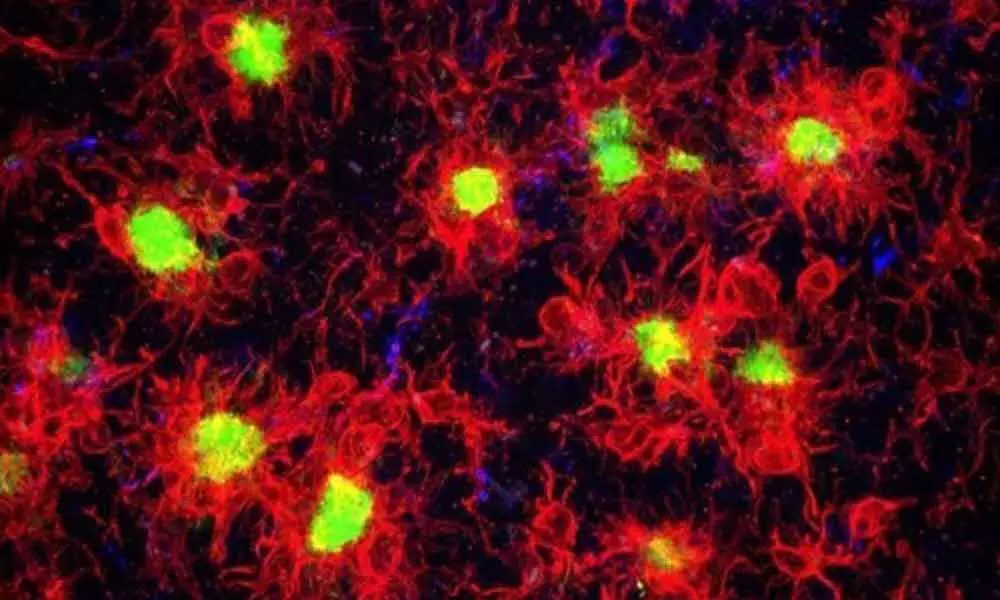Live
- Kadapa Municipal Corporation Meeting: Heavy Police Deployment and Section 144 Imposed
- Mandhana, Renuka blow away Windies in first ODI
- Heavy rush for Bhavani Deeksha Viramana continues
- Steps taken to ensure accommodation to common devotees says TTD EO J Syamala Rao
- CRDA invites tenders for ‘Happy Nest’ township
- PD Act invoked against red sanders smuggler
- Meghalaya scrape past Goa to secure QF berth
- India lift inaugural U19 Women’s Asia Cup
- No place for Stokes as Root returns to England’s squad for India ODIs and CT
- A year of political earthquake
Just In
Immune cells rewire, repair brain while we sleep: Study


Researchers have found that immune cells called microglia, which play an important role in reorganising the connections between nerve cells, fighting infections, and repairing damage, are also primarily active while we sleep.
New York (IANS): Researchers have found that immune cells called microglia, which play an important role in reorganising the connections between nerve cells, fighting infections, and repairing damage, are also primarily active while we sleep.
Microglia serve as the brain's first responders, patrolling the brain and spinal cord and springing into action to stamp out infections or gobble up debris from dead cell tissue.
"This research shows that the signals in our brain that modulate the sleep and awake state also act as a switch that turns the immune system off and on," said study lead author Ania Majewska, Professor at University of Rochester in the US. In previous studies, Majewska's lab has shown how microglia interact with synapses, the juncture where the axons of one neuron connects and communicates with its neighbours.
The microglia help maintain the health and function of the synapses and prune connections between nerve cells when they are no longer necessary for brain function. For the findings, researchers conducted the study on mice.
The current study points to the role of norepinephrine, a neurotransmitter that signals arousal and stress in the central nervous system.
This chemical is present in low levels in the brain while we sleep, but when production ramps up it arouses our nerve cells, causing us to wake up and become alert.
The study showed that norepinephrine also acts on a specific receptor, the beta2 adrenergic receptor, which is expressed at high levels in microglia.
When this chemical is present in the brain, the microglia slip into a sort of hibernation.
The study, which employed an advanced imaging technology that allows researchers to observe activity in the living brain, showed that when mice were exposed to high levels of norepinephrine, the microglia became inactive and were unable to respond to local injuries and pulled back from their role in rewiring brain networks.
"This work suggests that the enhanced remodeling of neural circuits and repair of lesions during sleep may be mediated in part by the ability of microglia to dynamically interact with the brain," said study first author Rianne Stowell.
"Altogether, this research also shows that microglia are exquisitely sensitive to signals that modulate brain function and that microglial dynamics and functions are modulated by the behavioural state of the animal," Stowell said

© 2024 Hyderabad Media House Limited/The Hans India. All rights reserved. Powered by hocalwire.com






